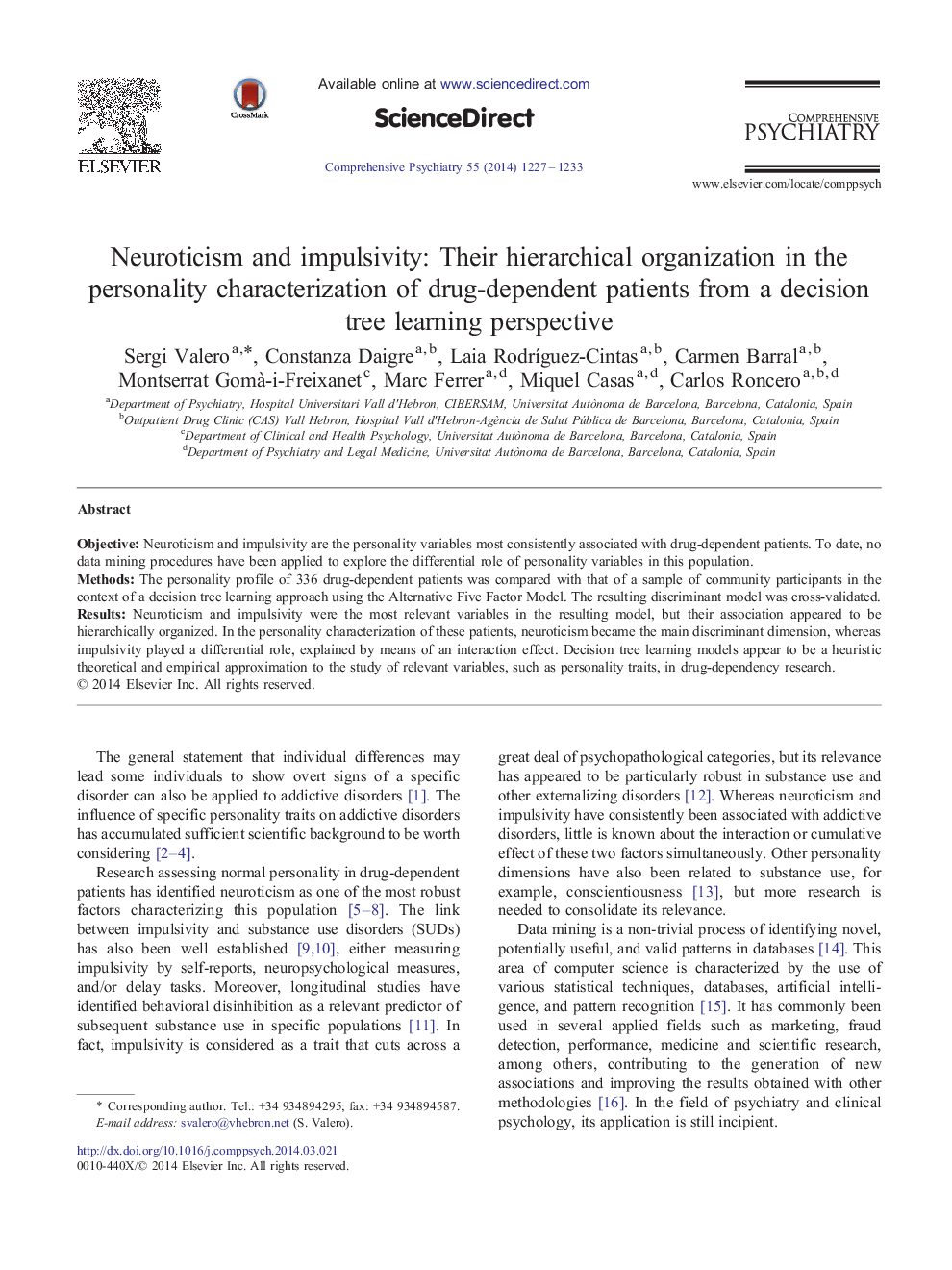| کد مقاله | کد نشریه | سال انتشار | مقاله انگلیسی | نسخه تمام متن |
|---|---|---|---|---|
| 316348 | 537720 | 2014 | 7 صفحه PDF | دانلود رایگان |
ObjectiveNeuroticism and impulsivity are the personality variables most consistently associated with drug-dependent patients. To date, no data mining procedures have been applied to explore the differential role of personality variables in this population.MethodsThe personality profile of 336 drug-dependent patients was compared with that of a sample of community participants in the context of a decision tree learning approach using the Alternative Five Factor Model. The resulting discriminant model was cross-validated.ResultsNeuroticism and impulsivity were the most relevant variables in the resulting model, but their association appeared to be hierarchically organized. In the personality characterization of these patients, neuroticism became the main discriminant dimension, whereas impulsivity played a differential role, explained by means of an interaction effect. Decision tree learning models appear to be a heuristic theoretical and empirical approximation to the study of relevant variables, such as personality traits, in drug-dependency research.
Journal: Comprehensive Psychiatry - Volume 55, Issue 5, July 2014, Pages 1227–1233
